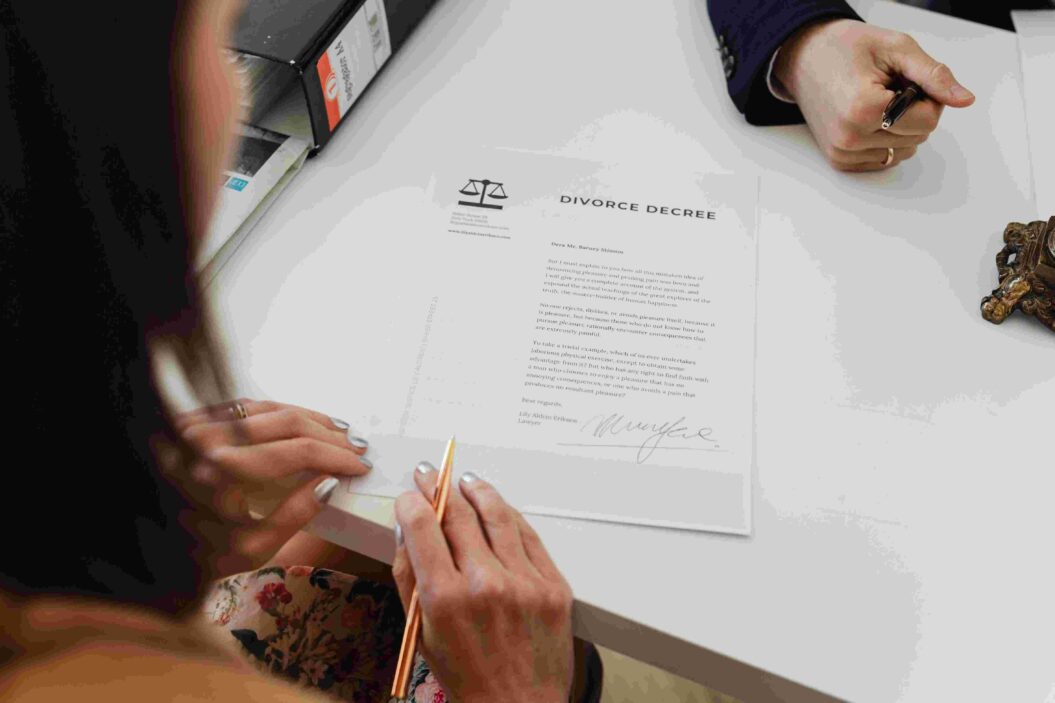For many couples, the decision to separate is never easy, and the journey of ending a marriage comes with a mix of emotions and legal complexities. The processes involved require careful attention to paperwork, ensuring all aspects of legal separation are handled properly.
A marital settlement agreement serves as a crucial document that outlines terms related to property division, finances, and responsibilities, while the divorce decree is the final ruling that legally ends the marriage.
Understanding these key differences is essential, as both documents play a vital role in the transition. More than a million people in India are divorced, highlighting the widespread need for clarity on these matters. Each case is complex, and knowing what is involved in reaching a fair resolution can make all the difference. Legal professionals often help break down these intricate aspects, providing answers that can ease the uncertainty surrounding divorce.
What Does a Marital Settlement Agreement Mean?
A marital settlement agreement is a legally binding document that outlines crucial logistical details regarding the end of a marriage, ensuring clarity in dividing shared property, establishing custody arrangements for children, and managing a family business or even family pets.
When a household transitions from one to two, this agreement provides structured legal guidelines to prevent confusion over responsibilities. It acts as a roadmap, detailing how both parties will fairly handle finances, custodial schedules, and property division both during the separation period and after the divorce. Once signed and notarized, it becomes a vital reference that eliminates uncertainty and helps implement necessary changes smoothly.
Who Prepares Marital Settlement Agreement?
It is crucial to hire a skilled lawyer when drafting a marital settlement agreement, as they ensure all necessary legal provisions are added, deleted, or corrected to fully protect your rights. If your spouse’s attorney has already prepared the document, you should seek an independent review on your behalf to avoid potential problems.
Legal terms such as settlement agreements vs. divorce decrees, exclusive possession, sole legal custody, and timely indemnify and hold harmless carry specific meanings, and without proper expertise, you might overlook key clauses that could impact your interests. A qualified family law attorney will ensure that essential words are included, reducing the risk of losing important rights. The smart choice is to consult an attorney from the beginning rather than facing unintended consequences in the end.
What Does a Divorce Decree Mean?
A divorce decree is the final legal document that officially mandates the end of a marriage in the eyes of the law. While a marital settlement agreement is a preliminary process outlining the terms of separation, the court must issue the decree after everything has been finalized.
Without this, a spouse cannot take essential legal steps like legally identifying as divorced, transferring assets, marrying again, or reclaiming a former name. If both parties cannot agree on the terms, they may face a contested divorce, extending the process further.
How to Maintain Privacy During Your Divorce
A divorce decree is often a public document, making details about your divorce accessible to anyone once it’s final in court. However, spouses who want to maintain their privacy can opt for a marital settlement agreement, which ensures that sensitive information is not included in public records.
To keep matters private, a judge can sign the divorce settlement agreement, preventing it from appearing in the public record while still being attached to the final decree. Both parties must follow the terms of the agreement, but if additional privacy is needed, they can request the court to seal the decree and remove any sensitive details from public access.
How to Access a Divorce Decree Online
The process to obtain a divorce decree varies across state courts, as each follows a separate process to issue these legal documents. Some courts require an applicant to visit in person and submit a request for a copy, while others allow individuals to complete request forms and send them via email.
Many courts now offer digital options where applicants can download the necessary forms from the court website and submit them electronically. Depending on the jurisdiction, the court may provide the requested divorce decree through mail or email, making it easier for individuals to obtain their records without in-person visits.
How to change or Challenge a Divorce Decree?
Under specific circumstances, making a modification to a divorce decree is indeed possible, particularly when it comes to alimony, child support, child custody, or visitation rights. If a significant life change occurs, such as a job loss or relocation, one may challenge the provisions within the entire document to ensure fairness. However, while a judge has the authority to alter certain requirements, they cannot revise agreements related to marital property distribution, as those decisions are generally final.
When is it Time to Hire a Lawyer?
Getting a lawyer as early as possible in the divorce process is crucial to ensure a smooth transition, whether you are preparing to talk to your spouse, file necessary paperwork, or explore options for the best course of action.
A legal expert can guide you through an uncontested divorce, making the process smooth, or assist in navigating a contested divorce if it becomes necessary. Whether you are in Oakbrook Terrace, IL, or elsewhere, having legal support is helpful to protect clients’ interests and ensure all terms are carefully considered.
Many people make rash or ill-thought-out decisions, and an attorney serves as a safeguard to prevent costly mistakes. Since negotiating divorce terms for a marital settlement agreement can be complex, even in amicable cases, legal professionals help structure divorce settlement agreements fairly, considering both parties, children, financial support, and living arrangements. They bring expertise in handling different perspectives, skills, and abilities, ensuring their clients’ voices and key points are effectively heard.

